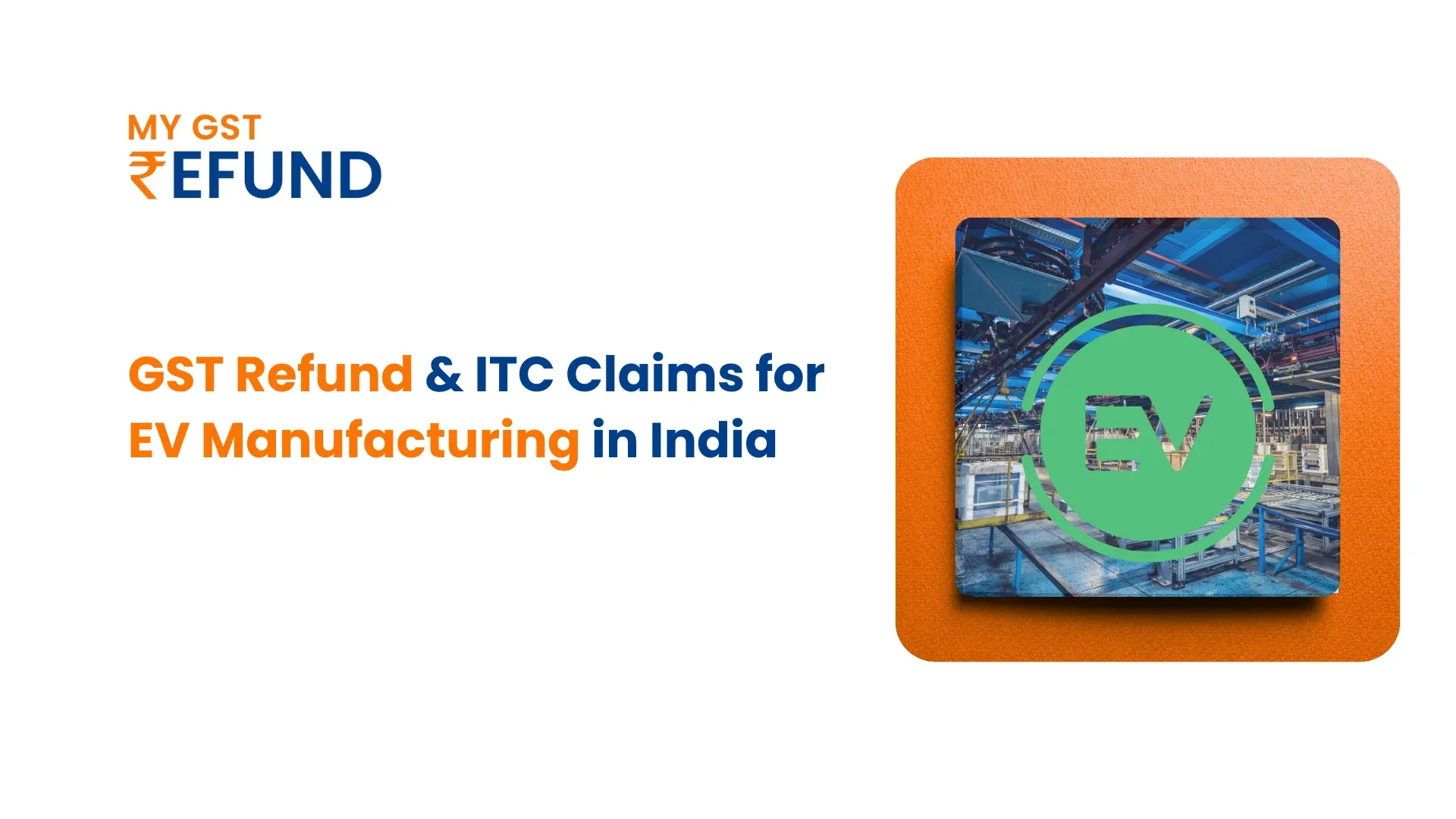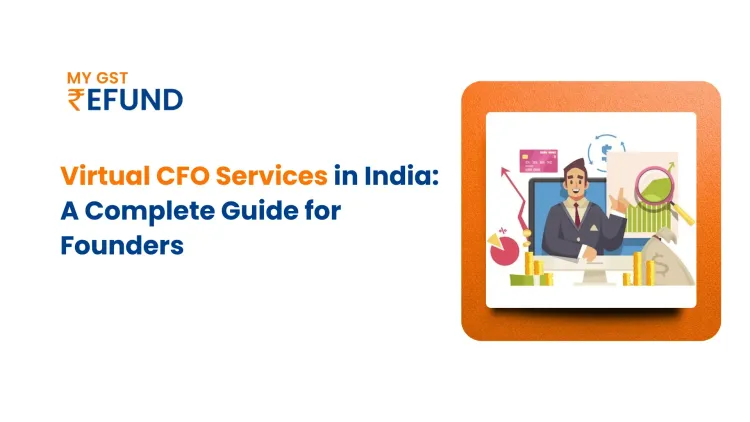GST Refund for EV Manufacturing in India
The electric vehicle (EV) industry in India is showing growth like never before, driven by favourable policy interventions, increased domestic production, and rising consumer demand for cleaner mobility.
This blog discusses the GST Refund for EV manufacturing inputs in India, including the Input Tax Credit (ITC), Production-Linked Incentive (PLI) support, and GST benefits. Each of the described scenarios is part of the claims and fiscal benefits available for EV manufacturing inputs.
1. Input Tax Credit (ITC) on EV Manufacturing Inputs
Under the GST Section 17 system, the Input Tax Credit (ITC) allows businesses to claim a GST Refund for EV manufacturing on the GST paid for goods used in the production of electric vehicles.
For EV manufacturers, this includes ITC on:
- Battery components
- Chargers and electronic parts
- Raw materials and consumables
This significantly reduces the effective tax burden during production.
Note: ITC on input goods is available for refund under IDS for EV Manufacturing, while ITC on input services and capital goods is not refundable - this is as per Rule 89(5) and Supreme Court judgment
2. GST Refund Under the Inverted Duty Structure for EV Manufacture
GST Refund for EV manufacturers commonly face an Inverted Duty Structure (IDS) - where the GST on inputs is higher than the GST on output vehicles.
- GST on most EV inputs → 12% or 18%
- GST on finished electric vehicles → 5%
This creates excess unutilised ITC that can be claimed as a GST Refund.
Example Scenario
- GST on input goods: 18% & 12%
- GST on outward supply (EV): 5%
In such cases, EV manufacturers are eligible to claim a Refund of unutilised ITC under Section 54(3) of the CGST Act.
Are You an EV Manufacturer?
If you’re in the EV manufacturing industry, you could be eligible for a substantial GST Refund under the Inverted Duty Structure. Don’t miss out on benefits that rightfully belong to you.
Claim Your Inverted Duty Structure GST Refund Today!
Important Legal Clarification
Refund is allowed only for input goods, not such as Input services, Capital goods. As per the Rule 89(5) of CGST Rules
3. Court Rulings Supporting EV ITC Refund Claims
The Orissa High Court (Omjay EV case) affirmed the right of EV manufacturers to claim GST Refund of unutilised ITC under the inverted structure. The court clarified:
- All eligible input goods used for manufacturing EVs must be part of the Net ITC for the GST Refund calculation.
- Refund cannot be denied where the output tax (5%) is lower than the input tax (12–18%).
- This ruling strengthens the position of EV manufacturers applying for GST Refund.
4. GST Rates Supporting EV Growth.
EVs are much cheaper and easier to manufacture because the GST Rates assigned on EVs and associated goods are much reduced in comparison to traditional vehicles:
- Electric Vehicles: 5% GST
- EV Batteries: 5% GST
- Charging Infrastructure: 5 per cent GST.
This GST system with ITC claims on inputs helps to make the cost of electric vehicle production cheaper and makes India more attractive as an EV manufacturing hub.
Conclusion
The ecosystem of fiscal and policy support in India fully supports the EV manufacturers. The government has provided a good environment to EV manufacturing inputs through GST and ITC Refund Claims, judicial clarity on the refund, specific PLI schemes, customs duty concessions, and low GST rates. The aggregate effect of these measures is to minimize the cost of production, invest in, strengthen domestic manufacturing capabilities, and quickly adopt EVs in India.
Frequently Asked Questions
1. Can EV manufacturers claim ITC on all parts used in their manufacturing?
Yes, ITC is applicable for the GST paid on component goods, raw goods, and parts used in the manufacturing of EVs.
2. Is ITC available for capital goods used in EV manufacturing?
Yes, the ITC is applied if the capital goods are new and are used to manufacture EVs.
3. Are blocked credit rules applicable to EV manufacturers?
No, EVs are manufactured for sale or for commercial supply - therefore, blocked credit rules don't apply.
4. What PLI schemes are available for EV manufacturers?
The PLI Auto and the PLI ACC schemes provide benefits based on incremental sales and value addition to the economy.
5. What is the GST on electric cars in India?
The GST rate of electric vehicles in India is 5 per cent, as compared to that of traditional vehicles.
Related Posts






